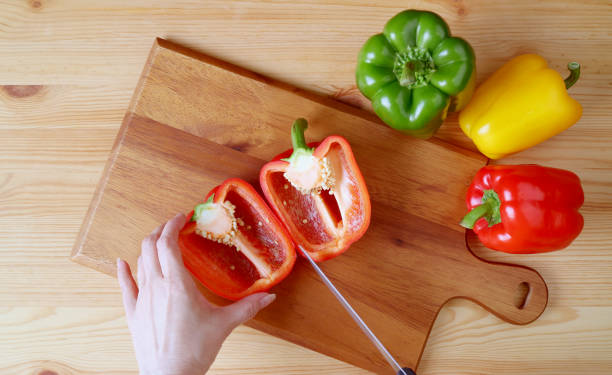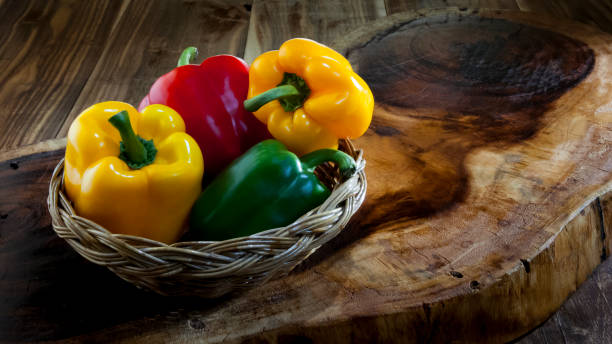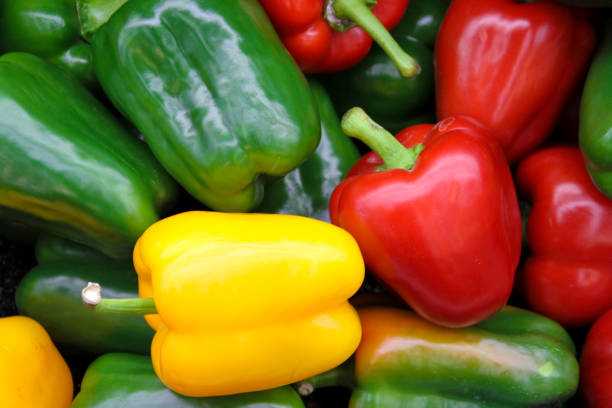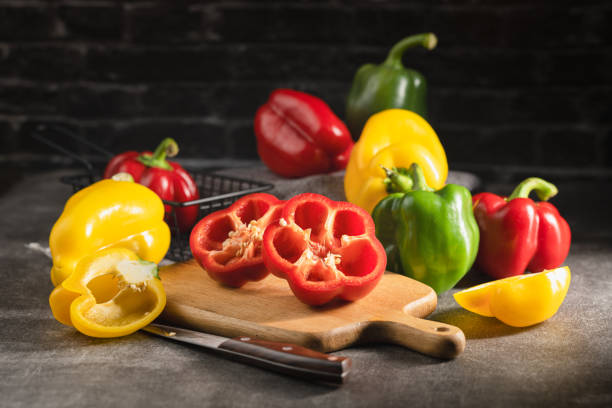Introduction
Clear, sharp vision is essential for everyday activities, from reading and working on a computer to driving and enjoying the world around you. While factors like genetics and aging can affect eye health, your diet plays a crucial role in maintaining strong eyesight. Eating nutrient-rich foods can help protect against vision problems, and one of the best options is bell peppers.
These colorful, crunchy vegetables are packed with vision-supporting nutrients like vitamin C, beta-carotene, lutein, and zeaxanthin, which help reduce the risk of common eye conditions such as cataracts, dry eyes, and age-related macular degeneration (AMD). Adding bell peppers to your diet is an easy and delicious way to support long-term eye health.
In this article, we’ll explore the eye-boosting benefits of bell peppers and share simple ways to incorporate them into your meals for better vision and overall wellness.

How Bell Peppers Support Eye Health
1. Rich in Vitamin C: The Antioxidant Powerhouse
Vitamin C is a powerful antioxidant that helps protect eye cells from damage caused by free radicals. Free radicals are unstable molecules that speed up aging and increase the risk of diseases like cataracts and AMD.
Bell peppers, especially red bell peppers, are one of the richest sources of vitamin C. Just one cup of raw red bell pepper provides over 150% of your daily recommended intake! This means that eating bell peppers regularly may help slow down vision loss and keep your eyes strong as you age.
How Vitamin C Benefits Your Eyes:
✅ Reduces the risk of cataracts
✅ Protects the cornea and retina from oxidative stress
✅ Supports the production of collagen, which helps maintain the structure of the eye
2. High in Beta-Carotene: A Natural Vision Booster
Beta-carotene is the pigment that gives orange, red, and yellow fruits and vegetables their bright color. It is also a type of provitamin A, which means your body converts it into vitamin A—a nutrient that plays a major role in maintaining good eyesight.
Vitamin A deficiency can lead to night blindness, dry eyes, and even permanent vision loss. By eating foods rich in beta-carotene, like bell peppers, you provide your body with the building blocks it needs to keep your eyes moist, sharp, and protected from infections.
How Beta-Carotene Supports Eye Health:
✅ Helps prevent night blindness
✅ Reduces the risk of dry eye syndrome
✅ Supports overall eye function and clarity
3. Contains Lutein and Zeaxanthin: Your Eye’s Natural Sunscreen
Lutein and zeaxanthin are two powerful antioxidants found in high concentrations in the retina of your eyes. They work like a natural sunblock, filtering out harmful blue light from digital screens and the sun, which can cause eye strain and damage over time.
Since the body cannot produce lutein and zeaxanthin on its own, you need to get them from food. Bell peppers are an excellent source, helping to protect your vision and reduce the risk of age-related macular degeneration (AMD), one of the leading causes of blindness in older adults.
How Lutein and Zeaxanthin Benefit Your Eyes:
✅ Filters out harmful blue light from screens and the sun
✅ Reduces the risk of macular degeneration
✅ Helps prevent digital eye strain and fatigue

How to Add Bell Peppers to Your Diet
One of the best things about bell peppers is their versatility. Whether you enjoy them raw, roasted, or blended into your favorite dishes, these colorful vegetables can easily be incorporated into your daily diet. Plus, their naturally sweet and crisp texture makes them an easy addition to both savory and refreshing meals.
Adding bell peppers to your meals regularly ensures you’re getting key nutrients like vitamin C, beta-carotene, lutein, and zeaxanthin, which all contribute to better eye health. Here are some easy and delicious ways to eat more bell peppers:
1. Eat Them Raw for Maximum Nutrients
Raw bell peppers offer the highest amount of vitamin C, as cooking can reduce some of their nutrient content. Slice them into thin strips and enjoy them as a crunchy snack with hummus or guacamole. You can also toss them into salads, wraps, or grain bowls for an added burst of flavor, color, and nutrition.
2. Roast for a Sweet and Smoky Flavor
Roasting bell peppers enhances their natural sweetness and gives them a smoky depth of flavor. Simply drizzle with olive oil, add garlic, and roast until tender. Use them in sandwiches, wraps, pasta dishes, or as a topping for grilled meats to elevate the taste while still getting vision-boosting nutrients.
3. Stir-Fry for a Quick and Nutritious Meal
Bell peppers are perfect for quick-cooking meals like stir-fries. Their slight crunch pairs well with broccoli, carrots, onions, and lean protein like chicken, shrimp, or tofu. Stir-frying preserves many of their nutrients while adding a deliciously fresh texture to your meal.
4. Blend into Smoothies for a Vitamin Boost
Surprisingly, bell peppers make a great addition to smoothies! Red and yellow bell peppers have a mild sweetness that blends well with tropical fruits like mango, pineapple, and orange. Adding them to your smoothie is an easy way to increase your vitamin C intake and support healthy vision without altering the flavor.
5. Stuff Them for a Healthy, Filling Meal
Stuffed bell peppers make for a nutritious and satisfying meal. Fill them with quinoa, brown rice, lean ground turkey, black beans, or cottage cheese for a high-protein, fiber-rich dish. Not only is this meal delicious, but it also provides a balanced combination of nutrients to keep your eyes and body healthy.

Conclusion
Bell peppers are more than just a colorful addition to your plate—they are a vision-boosting superfood loaded with essential nutrients like vitamin C, beta-carotene, lutein, and zeaxanthin. These powerful antioxidants work together to protect your eyes from aging, enhance night vision, and lower the risk of common eye conditions such as cataracts, dry eyes, and age-related macular degeneration (AMD).
Incorporating a variety of colorful vegetables, especially bell peppers, into your diet can help maintain sharp eyesight and long-term eye health. Whether you enjoy them raw, roasted, or blended into meals, bell peppers provide a simple and delicious way to support your vision naturally.
So, the next time you’re at the grocery store, pick up some red, yellow, or orange bell peppers and give your eyes the nutrients they need to stay strong and healthy for years to come!

